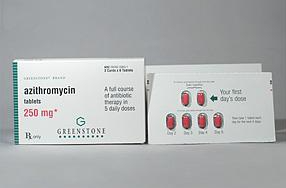While 250 mg of azithromycin is a lower dose than the standard chlamydia treatment, it may still be effective in treating the infection in some cases. However, the appropriate dose and duration of treatment will depend on various factors, such as the severity of the infection, the patient's medical history, and the presence of any other medical conditions.
It's important to follow the healthcare provider's instructions for taking the medication and to complete the full course of treatment, even if symptoms improve. It's also important to notify sexual partners and to abstain from sexual activity until the infection is fully treated to avoid reinfection and spreading the infection to others.
What is the complexity of chlamydia treatment?
The complexity of chlamydia treatment can vary depending on various factors such as the severity of the infection, the patient's medical history, and any other medical conditions they may have.
In general, the treatment for chlamydia is relatively straightforward, and the infection can be cured with a course of antibiotics, typically azithromycin or doxycycline. However, there are some complexities to consider:
Accurate Diagnosis: The first step in treating chlamydia is accurate diagnosis, which may involve testing a sample of urine or swabbing the infected area. False-negative test results can occur, so it's important to ensure that the test is performed accurately.
Treating Sexual Partners: Because chlamydia is a sexually transmitted infection, it's important to notify sexual partners and encourage them to get tested and treated as well to avoid reinfection and spreading the infection to others.
Compliance: It's important for patients to take the full course of antibiotics as prescribed, even if they start feeling better before the medication is finished. This can be a challenge for some patients, and failure to complete the full course of antibiotics can lead to treatment failure and the development of antibiotic-resistant bacteria.
Possible Side Effects: Antibiotics used to treat chlamydia can have side effects, such as gastrointestinal upset or allergic reactions, which can be uncomfortable or even dangerous for some patients.
Potential Coinfection: Patients with chlamydia may also be infected with other sexually transmitted infections, such as gonorrhea or syphilis, which may require additional testing and treatment.
Overall, while chlamydia treatment is generally considered to be straightforward, there are several factors that can add complexity to the treatment process. It's important for patients to work closely with their healthcare providers to ensure that the infection is effectively treated and to address any challenges that may arise during the treatment process.
